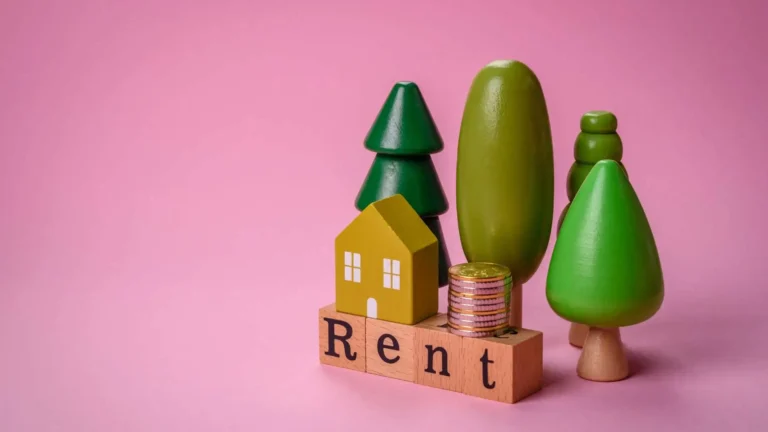Table of Contents
Renting’s Quiet Strengths
In America, renting has long been viewed as a second-best option, something you do until you can afford a home of your own. But in 2025, that narrative is cracking. With mortgage rates still hovering around 6.5%, housing prices stubbornly high, and bidding wars erupting in even mid-sized cities, renting has quietly emerged as not just a stopgap but a strategic choice.
Hot markets, where demand outpaces supply and prices surge, make ownership daunting. Families stretch their budgets thin, chase after limited inventory, and sometimes find themselves locked into homes that cost far more than expected. Renting, by contrast, offers flexibility, predictability, and in many cases, a better fit for modern life.
Beyond the obvious perks of avoiding down payments and maintenance, renting carries hidden, overlooked benefits. Here are ten compelling reasons renting can be the smarter play in overheated housing markets.
1. Freedom from Overpaying at the Peak
Hot housing markets often come with a dangerous psychological trap: the fear of missing out. Buyers bid tens of thousands over asking, convinced they must “get in now” before prices climb higher. But markets are cyclical. Families who buy at the peak can wait years for their home’s value to recover if prices dip. Renters sidestep this risk entirely. They can live in desirable neighborhoods without gambling their life savings on uncertain market timing.
2. Liquidity: Keeping Your Money Flexible
Buying a home requires tying up tens of thousands in down payments, closing costs, and ongoing equity. For renters, that capital stays liquid. Instead of sitting in drywall and shingles, savings can remain in high-yield accounts, retirement funds, or diversified investments. In a volatile economy, liquidity is power: it lets families adapt quickly, take advantage of opportunities, or weather downturns without being house-poor.
3. Insulation from Surprise Costs
Buyers often rush inspections or waive contingencies in hot markets to secure a property. That can leave them with hidden repair bills, a $10,000 roof, a failing HVAC, or outdated wiring. Renters, by contrast, are insulated. When the water heater bursts, it’s the landlord’s problem. That freedom from unexpected expenses isn’t just financial relief; it’s mental clarity.
4. Flexibility to Relocate
Hot markets are dynamic. Jobs shift, industries rise and fall, and neighborhoods change rapidly. Renting allows families to move quickly, closer to new job hubs, better schools, or safer areas, without being locked into a 30-year mortgage. Homeowners who need to sell in a cooling market may be stuck, while renters can pivot in months.
5. Access to Premium Locations Without the Price Tag
Buying prime urban cores or trendy suburbs often comes with million-dollar price tags. Renting, however, allows families to enjoy those same locations, walkable neighborhoods, access to public transit, and proximity to job centers, at a fraction of the ownership cost. For many, renting unlocks a lifestyle they couldn’t otherwise afford.
6. Reduced Exposure to Property Taxes and Insurance Spikes
Hot markets rarely bring high home prices, increased property taxes, and insurance premiums. A $500,000 home in Texas or Florida may saddle owners with annual taxes of $8,000–$10,000, plus rising insurance costs in climate-risk zones. Renters, meanwhile, avoid these spikes entirely, paying only for renters’ insurance at a modest $15–$30/month.
7. Freedom from “House Poor” Living
The term “house poor” describes families who spend so much on their mortgage that little remains for savings, vacations, or daily living expenses. It’s a common fate in hot markets, where buyers stretch to their maximum approval. Renters, however, can choose properties within their means, freeing up cash flow for experiences, investments, and stability.
8. Mental Bandwidth: Less Stress, More Living
Homeownership is rewarding, but it comes with constant responsibilities: mowing lawns, fixing leaks, scheduling repairs, and negotiating with contractors. In hot markets, many buyers end up with fixer-uppers disguised as move-in-ready homes, multiplying stress. Renters outsource all of this. When something breaks, one phone call solves it. The time and emotional energy saved is a hidden wealth that renters carry.
9. Ability to Test Drive a Market Before Committing
When you rent a house, you can explore neighborhoods, commute routes, schools, and community life before buying. In hot markets, where bidding wars push families to make quick decisions, this “test drive” is invaluable. A renter can live in an area for a year or two and decide whether the lifestyle matches their needs before committing to ownership.
10. Protection Against Market Volatility
Housing markets don’t rise forever. Inflation, job losses, or interest rate shifts can cool even the hottest city. Homeowners may see their equity vanish overnight in a downturn. Renters, however, are largely shielded. If conditions worsen, they can not renew their lease, walking away without the burden of a depreciating asset.
Read related blog: Renting vs Buying: Financial Pros and Cons in 2025
The Overlooked Advantages: Beyond the Top Ten
Renting and Career Mobility
Hot markets like Silicon Valley, New York, and Austin often overlap with booming job hubs. These areas offer enormous career potential, but industries can change fast. Renting lets workers chase opportunities, whether a startup across town or a promotion across the country. Homeownership, in contrast, can tether families to one spot, even when better opportunities call.
Renting and Lifestyle Freedom
Ownership roots families in place. Renting, however, aligns with modern life stages. Young professionals can live near nightlife or job centers. Families can prioritize school districts. Retirees can downsize into manageable apartments. Each move requires only a lease, not thousands in closing costs.
Renting and Climate Resilience
In climate-risk regions, coastal Florida, wildfire-prone California, and flood zones in Louisiana, homeowners are increasingly vulnerable to insurance spikes and repair disasters. Renters live with far less exposure. If risks worsen, they can relocate with far fewer barriers.
Read related blog: Preventive Care Benefits: What’s Included and Why It Matters
Renting in Hot Markets vs Buying at the Peak
| Factor | Renting in a Hot Market | Buying at the Peak |
| Entry Costs | Security deposit + 1–2 months’ rent | Down payment + closing (~$30K–$80K) |
| Market Timing | Flexible, wait for correction | Risk of overpaying; trapped if values fall |
| Wealth Building | Must invest savings actively | Automatic equity growth (if values rise) |
| Risk Exposure | Low, walk away at the end of the lease | High, tied to mortgage + market volatility |
| Stress Level | Predictable, the landlord covers repairs | Unpredictable, the buyer covers all upkeep |
| Best For | Flexibility, testing markets, protecting liquidity | Stability, long-term stay, generational wealth |
Renting as a Hedge Against Interest Rate Uncertainty
One of the most overlooked advantages of renting in a hot market is protection from volatile interest rates. Buyers in 2025 face mortgage rates hovering around 6.5%, but with inflation pressures and Fed policy still in flux, rates could climb higher. For families buying at the wrong moment, even a 1% increase can add hundreds to their monthly payment and tens of thousands over the life of the loan.
Renters are shielded from this uncertainty. While rents may rise over time, they typically do so incrementally and are often predictable within a lease cycle. Renting buys you breathing room, letting you wait for interest rates to stabilize before locking yourself into decades of payments. For many households, that patience is worth far more than rushing into ownership to avoid “missing out.”
Renting as a Strategy for Diversified Wealth
Homeownership concentrates wealth into a single, illiquid asset. When you rent a place, it allows you to diversify. Instead of tying up $50,000 in a down payment, a renter can spread that capital across stocks, retirement funds, bonds, or entrepreneurial ventures. This diversification reduces risk and can generate higher returns than home equity in certain markets.
For example, a renter who consistently invests in index funds over 10 years may see double-digit annual returns while maintaining flexibility. This strategy is especially powerful in hot housing markets where home appreciation may not outpace alternative investments. Far from being “lost money,” rent can serve as a stable base while your investments build wealth.
Renting and Access to Lifestyle Upgrades
Hot housing markets don’t just inflate home prices but also expectations. Families often stretch for smaller homes in less desirable neighborhoods, sacrificing their lifestyles to buy. Renting, however, flips the equation. For the same monthly outlay, renters can often secure premium locations, better amenities, and upgraded living spaces that would be unattainable as owners.
Consider a family choosing between buying a small, outdated home on the outskirts versus renting a modern apartment near work, schools, and community hubs. The renter enjoys walkability, better schools, and more free time without the burden of commuting or repairs. In many cases, the quality-of-life gains from renting outweigh the slow wealth-building of ownership.
Renting During Life’s “In-Between” Seasons
Hot markets pressure families into thinking they must “buy now” or miss out forever. However, renting can be the smarter choice during the transitional phases. Newlyweds may want to explore neighborhoods before committing. Families with teenagers nearing graduation may hesitate to buy in one school district. Professionals expecting job changes or relocations may prefer the agility of renting.
Ownership, in contrast, can backfire during these “in-between” seasons, locking families into homes they outgrow quickly. Renting allows you to align housing with life’s shifting timelines, avoiding the costly mistake of buying too soon.
Renting and the Mental Wealth Factor
Financial comparisons rarely capture the psychological relief of renting. In hot markets, homeowners describe the stress of being overleveraged: endless bills, the looming threat of job loss, and anxiety about market downturns.
Renters often enjoy a clearer mental landscape. Their monthly rent is predictable, their responsibilities are minimal, and they can plan their lives without fearing a repair bill will derail their budget.
One of the least discussed but most powerful hidden benefits of renting is this “mental wealth,” freedom from stress, predictability of expenses, and the ability to focus on work, family, or personal goals.
In an era where mental health is increasingly tied to financial well-being, renting delivers a peace of mind that ownership can rarely match in overheated markets.
Read related blog: Top 10 Benefits of Using Beem Health for Your Family’s Wellness
The Rent vs Buy Reality in Hot Markets
| Factor | Renting | Buying |
| Upfront Costs | Security deposit + first month (~$3K–$5K) | Down payment + closing (~$30K–$60K) |
| Monthly Costs | Fixed rent + small insurance | Mortgage + taxes + insurance + repairs |
| Flexibility | High, relocate with notice | Low, selling takes time and costs |
| Surprise Costs | Minimal, landlord pays | High, repairs, special assessments |
| Wealth Growth | Must invest savings separately | Equity builds over time |
| Stress Level | Lower, landlord handles issues | Higher, owner manages everything |
| Best For | Mobility, testing markets, financial flexibility | Long-term stability, equity growth |
How Beem Helps Renters Thrive in Hot Markets
Even renters face financial surprises, such as sudden rent hikes, unexpected deposits, or moving costs. Beem’s Everdraft™ Instant Cash cushions those shocks with up to $1,000 interest-free, no credit checks, and no due dates. Download the app now!
With Beem’s range of budgeting and financial management tools, renters can turn flexibility into financial strength, making renting not a fallback but a strategy.
The Bottom Line: Renting Is Power in 2025
In overheated housing markets, renting is not wasteful; it’s wise. It protects families from overpaying at the peak, preserves liquidity, and keeps life flexible. It reduces stress, shields against volatility, and even opens doors to premium lifestyles without premium risks.
Homeownership still holds long-term appeal, but it isn’t always the smartest move in hot markets. Renting, approached with discipline and strategy, isn’t “throwing money away.” It’s a way to live well today while building financial confidence for tomorrow.
FAQs on Top 10 Hidden Benefits of Renting in a Hot Market
Is renting really smarter than buying in hot markets?
Not always, but often. Renting avoids overpaying at the peak and protects liquidity, while buying can trap families in inflated mortgages. The smarter path depends on how long you plan to stay and whether you can invest savings outside of housing.
Can renters build wealth without owning property?
Yes. By investing consistently in stocks, retirement accounts, or bonds, renters can grow wealth that rivals or surpasses home equity, especially if they avoid costly repairs and property taxes.
Does renting protect me from rising costs better than owning?
In many cases, yes. Renters face rent hikes but can relocate if costs get too high. Homeowners face unavoidable costs: taxes, insurance, and repairs that often outpace inflation.
Why is renting so beneficial during uncertain times?
Because it offers flexibility, renters can move for jobs, downsize during layoffs, or relocate away from climate risks. Owners are tied to their property, making it harder to adapt.
How can Beem help renters in hot markets?
Beem cushions surprises like sudden rent hikes, deposits, or moving costs with Everdraft™. It helps renters stay stable while keeping their long-term savings intact for investment or future ownership.














































